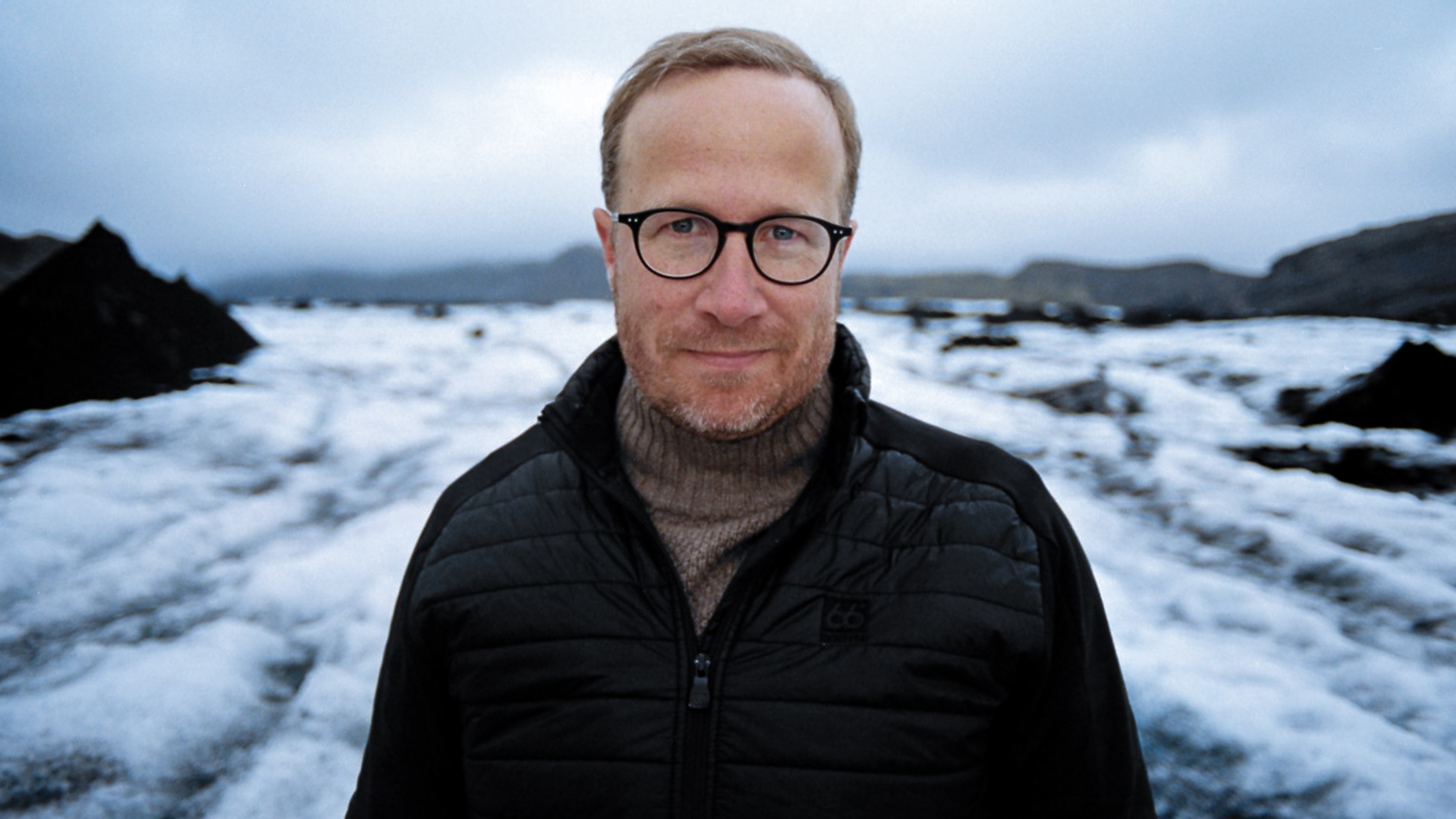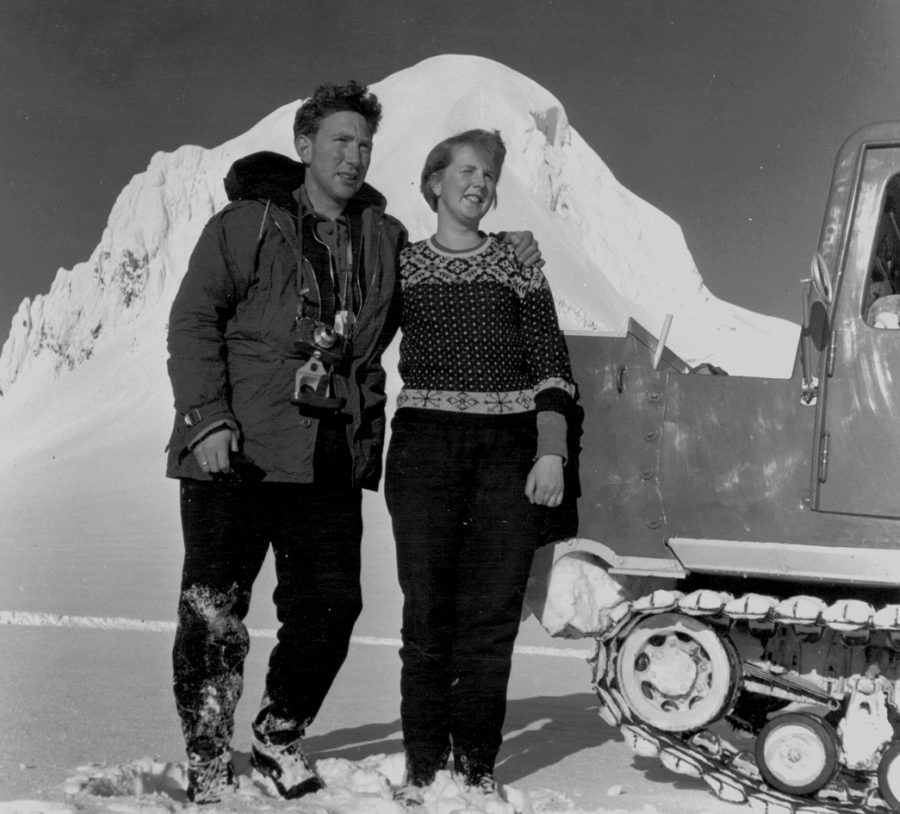Icelandic saga

International best-selling author Andri Snaer Magnason recognises that people have trouble taking action on climate change because it feels too big, impersonal and abstract. In this year’s Magnusson lecture he will discuss how he has used myth and memoir to bring home its realities for readers. We talked to the former Icelandic presidential candidate about his family’s connections to the country’s vanishing glaciers and the responsibility of citizens of democratic countries to take responsibility for what’s happening.

Does your family have a long-standing interest in Iceland’s glaciers?
Yes, my grandparents were founding partners of the Icelandic Glacial Research Society. They went on honeymoon in 1956 for three weeks to explore Vatnajökull, Europe's biggest glacier.
At that time there weren’t even proper measurements of how high the peaks were, or, or how deep the snow was. So this was a collaboration of citizens, scientists, volunteers, mountain lovers and crazy truck drivers that could keep vehicles alive for three weeks without any back maintenance.
This was the founding team for glacial research in Iceland. At that time it was a quirky interest. But now after the glaciers have been measured for 70 years, this data is used to understand the future.
What has happened to Vatnajökull since your grandparents took part in those studies?
It was 10,000 square kilometres and now it’s shrunk to about 8,000. It may be mostly gone in the lifetimes of today’s young people.
Tell us a bit about the book.
On Time and Water is about bringing the year 2150 out of the realm of sci-fi and Hunger Games and dystopia and an urgent inner sphere of continuity. The personal and social decisions we make now will have a direct impact on the world in 2150 and on our own families.
Should we all be taking more responsibility for combating climate change?
We want democracy so it’s our responsibility to navigate and decide for the future. We must be interested in the issues that are most important.
But there is a problem that global warming feels a boring issue to many people - things are repeated many times and the language is so stagnant. You start forgetting how urgent it is, it starts to normalise.
What are you doing about it?
As an author, and a citizen, I started to wonder how do you talk about something that is so much spoken about, but with too little action taken?
My metaphor was that you can't look straight into a black hole, you have to look at the periphery, at the neighbouring stars and galaxies to really understand it.
So I found out that I can connect to the future by deeply connecting to the past, to my grandparents, for example, who are the same distance back as 2150 is in the future.
I can understand the future by understanding the past and I can understand science by using poetry and mythology and I can be global by being personal. I go in the opposite direction from what might be most obvious.
And then I found that by putting crocodiles into the book, I had the key to finishing the whole picture.
You ran for president and came third, that seems pretty impressive.
We want democracy, so sometimes we have to wonder if it's our turn to take some responsibility. So I just jumped into the game. It was very interesting. I think everybody should do this at some point and not leave it to others to take responsibility for where we're heading.
It gave me a platform to talk about climate change and the glaciers and to connect with scientists, politicians, journalists, and the public and to escalate the awareness.
What will you be talking about in the Magnusson lecture?
I will be talking about On Time and Water and taking people on this journey through different places and mythology - and crocodiles.
What do you say to young people about our future?
I say the current generation has neglected many vital issues. We don't understand that the 21st century has started. People of my age think 1970 was 30 years ago and 2050 is 50 years ahead.
I say that it doesn't matter what field they go into, everything has to be revolutionised. If they go into fashion, that's almost as big a concern as aviation. They have to revolutionise how we dress, how we use clothes, where they come from, how long they last and how they are recycled.
The fashion industry has to be revolutionised along with transportation, aviation, and the whole energy system has to be completely remade.
If they go into law, for example, they will need to look at almost every law that we have. Current laws are not taking their interests as a fact. So many things that are legal now will be lethal towards a person in the year 2080.
We are in one of humanity’s biggest ever paradigm shifts. Everything has to be rethought and remade.
And are you optimistic, or pessimistic?
If I could choose whether to go back in time or forwards I would rather go forward. I don’t think I wouldn't have finished the book if I was pessimistic, because I didn't feel like writing some kind of a farewell note to the world or telling people they were too late to the party.